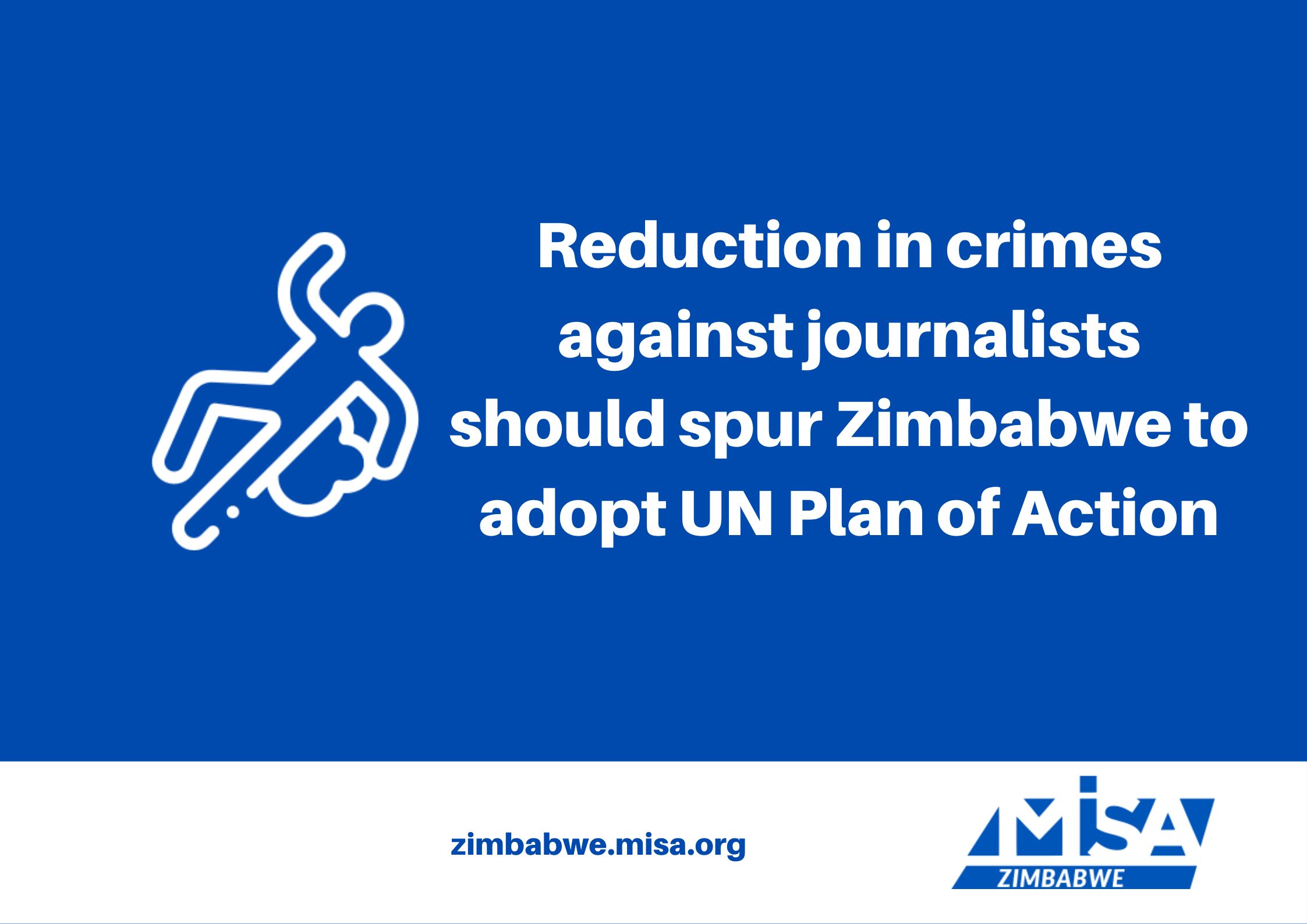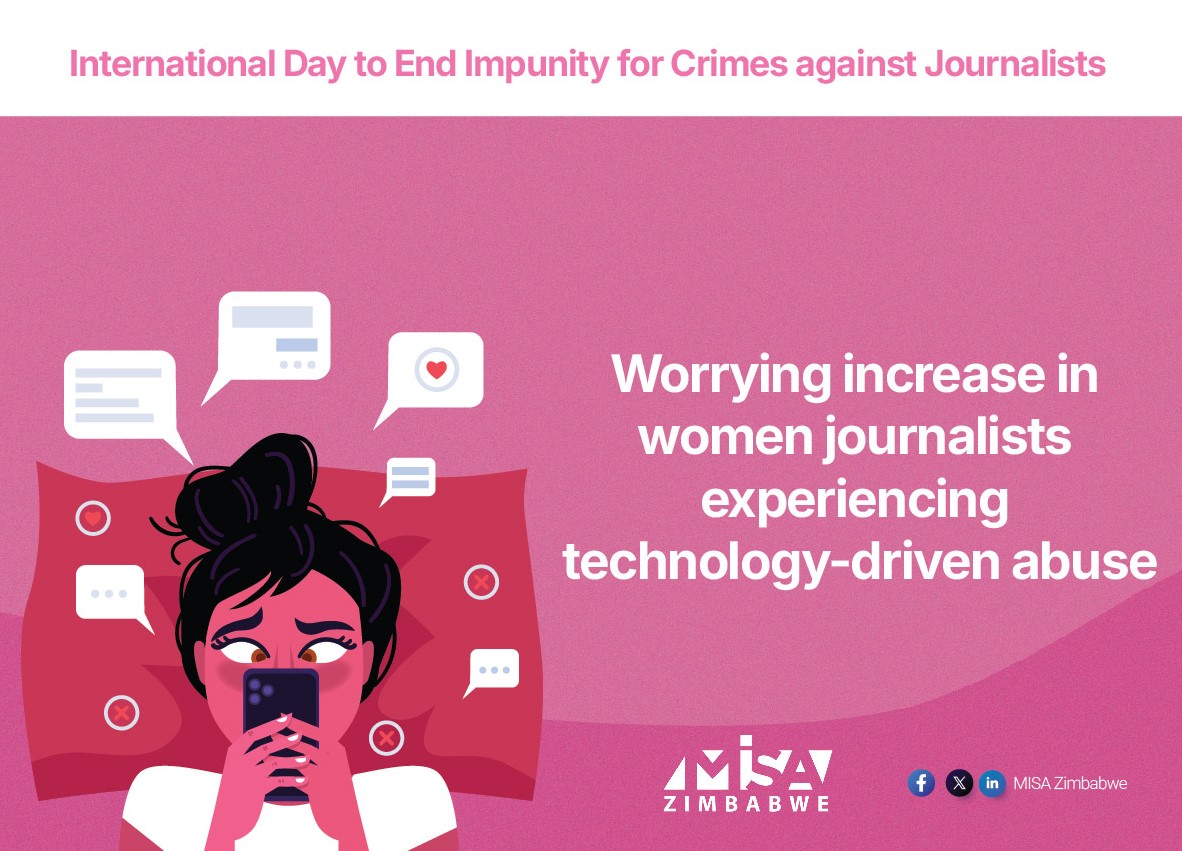The drastic reduction in media freedom violations during Zimbabwe’s 2023 election cycle is a significant development which comes at a time when the world commemorates the International Day to End Impunity for Crimes against Journalists (IDEI) on 2 November 2023.
This positive development should spur the country to adopt and localise the United Nations Plan of Action (UNPA) on the Safety of Journalists into the country’s legislative frameworks.
This will demonstrate the country’s commitment to stemming crimes against journalists, considering that this year’s IDEI commemorations focus on Violence against journalists, the integrity of elections, and the role of public leadership.
Ending or reducing crimes (media violations) is at the core of guaranteeing the exercise of freedom of expression and the free flow of information for informed decisions and choices.
In Zimbabwe’s case, the foundation for the role of public leadership in ending crimes against journalists was amply demonstrated in the pre-election and post-2023 election period through the implementation of the Police-Media Action Plan of December 2017.
The Action Plan was the culmination of a meeting between representatives of media organisations led by MISA Zimbabwe and the Zimbabwe Republic Police in Harare on 20 December 2017.
The meeting developed a raft of action plans to secure a safe and conducive working environment for journalists.
In Zimbabwe, crimes against journalists and media workers, as happens in other parts of the world, tend to increase during election cycles and involve law enforcement agents and political parties.
These violations involve the unlawful arrests, assaults, and harassment of journalists by state and non-state actors, such as supporters of political parties.
In line with the Police-Media Action Plan, MISA Zimbabwe, in conjunction with key stakeholders, took various steps and interventions ahead of Zimbabwe’s 2023 harmonised elections.
Nationwide engagement meetings were held with the police, media and political parties while the government reiterated its commitment to ensuring a safe media operating environment during the elections.
These interventions resulted in a vastly improved safety and security environment for the country’s journalists and media workers.
Following these meetings and the proclamation of the 2023 Zimbabwean elections on 31 May 2023 and the holding of the elections on 23 August 2023 (a period usually characterised by increased media freedom violations), only three (3) violations involving political actors were recorded.
No media violations involving the police or other security arms of the state were recorded during this period. However, on this day, we call upon the police to investigate all reported cases involving the assault or harassment of journalists.
If this downward spiral in media freedom violations continues to subsist, Zimbabwe is poised for further improvement in the World Press Freedom Index rankings as the elections were held in a drastically improved media operating environment.
In that regard, MISA Zimbabwe is of the firm view that the adoption and localisation of the United Nations Plan of Action (UNPA) on the Safety of Journalists as part of concrete efforts to end impunity of crimes against journalists, will be the clincher that will set Zimbabwe on the progressive path to the operations of a free and unhindered media.
MISA Zimbabwe Statement on International Day to End Impunity for Crimes against Journalists
Golden Maunganidze
Chairperson MISA Zimbabwe












